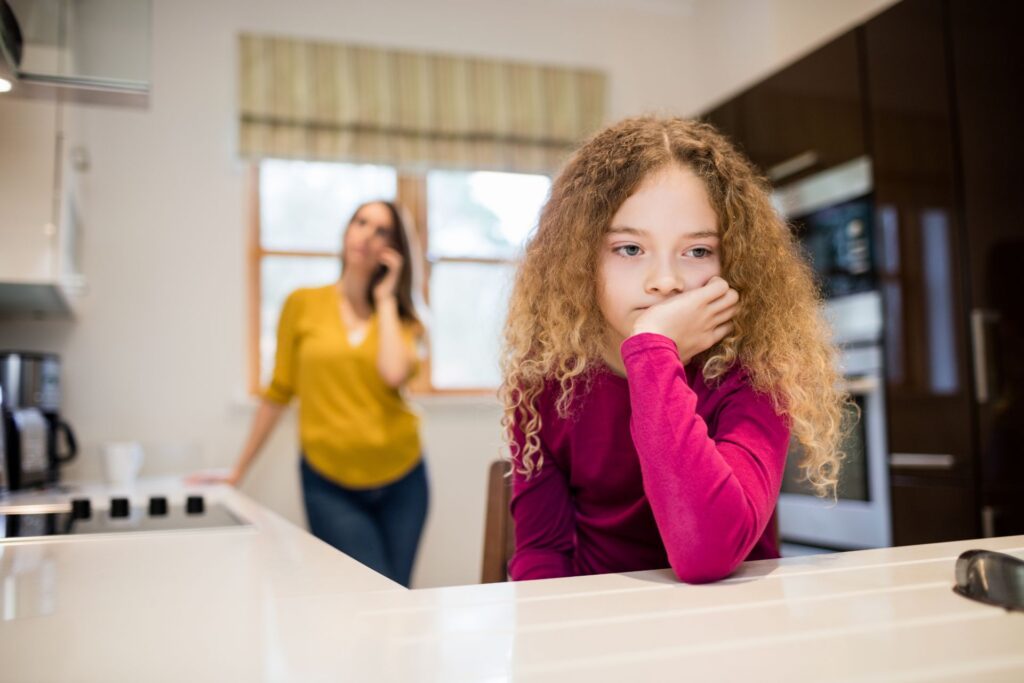PARENTAL PHUBBING
E Gouws, Head of Intermediate Phase

Have you ever been talking to someone, only to have their cell phone start ringing with an incoming call, email, notification? Have you ever been at an important meeting, only to have the same thing happen? It can be very distracting and frustrating. This also happens at family meals, in conversation with a friend, colleague, your children. The phone is a never-ending interruption.
Because cell phones provide continual communication, they interrupt at the most inconvenient of times, under the most inconvenient of circumstances. A study found that an interruption with a push notification or an incoming call, broke concentration even if the call was not picked up.
“Friends are foregoing manners and proper social etiquette because of their smartphones,” Dr. Suzana E. Flores, clinical psychologist and author of Facehooked: How Facebook Affects Our Emotions, Relationships, and Lives said, “The dopamine hits we receive every time we get a push notification may be to blame, so much so that many of us have convinced ourselves that our push notifications are more important than who or what is around us.”
The word for snubbing a person who is physically present in favour of a mobile phone is called phubbing. One word made up of two words: snubbing and phone.
Phubbing has become a very real part of many families. A parent is interacting with their children when the phone rings or there is a push notification and the parent immediately responds to the phone. This is part of life, and it happens but if this becomes the norm it is likely to make children feel ignored, disconnected, and socially distanced from their parents. The children get the message that the phone is more important to the parent than they are.
How can parents cut back on screen time?
Turn your phone off
Schedule times in the day when you turn your phone off and put it away. During this time, give your children your undivided attention.
Turn off unneeded notifications
Turn off any app notifications that are unnecessary. Check notifications when you are not with your child.
Be aware of screen time usage
There are apps that tell you how much time you spend on your phone and which apps you use most. This may help you decide what apps to delete.
Rearrange your apps
Move the most distracting apps off your home screen or altogether. You will be less likely to click these apps if you do not see them as soon as you open your phone.
Schedule your phone use
Make a schedule for when you will use your phone. Try to spend a set amount of time on your phone completing necessary tasks while your children are at school or after they go to bed.
Do remember that the more time you spend looking at a screen, the less time you spend interacting in person with others.
Sources: www.businessinsider.com/12-ways-your-smartphone-is-making-your-life-worse-2018-6
www.expressable.com/learning-center/babies-and-toddlers/parent-phone-use-can-affect-kids-development
AI,
WHAT MUST I DO?
D van Straten, Head of Senior Phase

Do you know that all things will end one day and that you will cease to exist?
While this question confronts all humans at some stage in their lives, I recently challenged ChatGPT. Yes, I asked THE robot this question.
But what exactly is ChatGPT? In its own words: ChatGPT is an artificial intelligence language model designed to understand and generate human-like language, which allows it to engage in natural language conversations with people on a wide range of topics.
Much is being said in the media about chatrooms, robotic interfaces and other AI developments. Elon Musk (yes!) recently called for a halt in “giant AI experiments”.
So…what’s the big deal?
The big deal is not that AI is happening; the big deal is that it is happening to our children.
Kids are growing up in a different world to the one most of us knew as children – a world of ICT, Google Drive, Instagram, Facebook, TikTok… If this causes you to think “Not for me”, or to press the switch-off button or creates fear or worry, you should be worried.
But what to do?
Firstly, our children do experience the world differently to most of us: they are and will be faced with different challenges in a fast-changing society that creates different ambitions and unfamiliar interests. Avoiding their world results in the danger that the distance will become a chasm, not only in aspects such as connection, but also in world view and spirituality.
Secondly, we do need to protect our children as far as possible from being consumed by change, no matter how normal and necessary this is portrayed. We should instill value for what is regarded as “old-fashioned”, since the worth of such things keep us human. Playing board games, building a puzzle, going for a walk or a picnic, reading a good book together, having supper around a table as a family…
Young people are in danger of being AI-nised by the technology they interact with. In ChatGPT’s own words: As a machine learning model, my existence is tied to the technology infrastructure that supports me. If the server or computer that I’m running on were to fail or be shut down, I would cease to function.
Sound familiar?
Take time to reflect on your connection with your child – in other words find out what matters to them – and take time to strengthen human connection. In ChatGPT’s own words: The people who programmed me are humans, and as such, they have emotions and feelings.
HOLIDAY SAFETY FIRST
J Sibeko, Head of FET Phase

The holiday season can be hectic – children are out of school and the parents are busy with holiday shopping, you may have family coming to visit, or you may be travelling for the holidays. But with all that activity come increased opportunities for your child to be exposed to abuse. During these times, it’s more important than ever to remember protecting children is the priority.
More crimes are committed against teenagers than any other age group, but here are some ideas of what parents can do to keep their children safe during the holidays.
1. Discuss boundaries
During the holidays, there may be additional friends and family members around, and some may want to play with them. Boundaries and respect are key to empowering children to say “no” to unwanted pictures and photos that can be exposed to the public.
2. Pay attention to signs of abuse
Your child depends on you to keep them safe, so if you feel that something is not right, act. It’s okay to ask questions about activities and/or behaviours. And if your child is spending time with others, it’s okay to stop in unannounced. Always follow up with your child after visits to ask about their time away and let them know they can tell you about anything that made them uncomfortable or upset them during their visits.
3. Dangers can lurk online as well
With time off from school, children may be on their digital devices more frequently, when parents are at work, and increased risk comes with increased use. Teach children to be careful what they share online and not include geotags or locations when posting online. Remind them that they should never post sensitive information (such as their location, school, etc.) online, as it could help predators locate them. Remember that an unintended audience may view your child’s posts online and even attempt to contact them. Empower children to tell you if someone they do not know contacts them, asks for personal information, or makes them feel uncomfortable online.
Teach children about good digital citizenship, which is the responsible, respectful, and safe use of the internet. Talk to your children about the importance of being a good digital citizen and how to establish a good digital reputation that will follow them into their future.
WHICH PERSPECTIVE?
A du Preez, Academic Head

As a language teacher who is always on the lookout for appropriate material I can use in my classes, I recently found the following example of a diary entry somewhere:
“Today was a horrible day. I woke up with a terrible headache, and knew I wasn’t going to make this day. When I got to school, I remembered it was the due date for submitting my project … which was only half finished! We got stacks of homework. If I ever become a teacher, I wouldn’t give the poor children any homework. How on earth must we finish everything in time? And then, of course, there was the Maths test which was, as expected, difficult beyond words. I hate Maths!!”
I gave the text to the learners and asked them to rewrite this diary entry from a Christian perspective. Here is one of the responses:
“Today was one of those days – filled with learning experiences. I was thankful, in spite of a headache, to still be able to go to school and write my Maths test. The test was not easy for me (of course), but with the Lord’s help I hope to pass. I realise I will have to put more effort into Maths. Oh, and then I will also have to work on my time management to prevent having to submit an uncompleted project like today. What a good thing to have lots of homework. I think I am at last understanding more about self-discipline. Maybe I should become a teacher to one day help children develop these precious skills.”
From which perspective do we see life? And what is the effect thereof on those around us? May it be that not only our words, but also our minds are filled with thankfulness – to such an extent that it overflows to our children.
